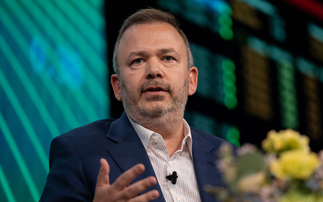Sam Morse, manager of Fidelity European Values PLC, tells Incisive Works how to make the best of a gloomy outlook
European companies are unlikely to see much in the way of earnings or share price growth this year following a tough 2018. That is the view of Sam Morse, the manager of a leading European equity trust who describes himself as "a cautious chap with a gloomy outlook".
But it's not all bad news. In fact, there are quality companies to be found in Europe at reasonable valuations, and many of those will be well placed to grow their dividends over the long term, creating shareholder value.
Morse's strategy, at the helm of the £1bn Fidelity European Values PLC, is to find those businesses and hold them for at least three to five years. "Companies that consistently grow their dividends do consistently outperform, the problem is identifying those companies," he says.
To find them, he scrutinises company fundamentals, including their growth drivers, how they use capital, whether they generate cash (a key indicator of future dividend growth), and the strength of their balance sheet.
His emphasis on careful bottom-up stock selection and protecting investors' capital means the portfolio is typically quite concentrated, with just 40-50 holdings in defensive-type stocks.
The trust can be expected to lag its peers during rapidly rising markets, for example, during recovery years such as 2009 post-financial crisis and 2013 post-European debt crisis. In contrast, it tends to outperform when investors are selling: "When people go from being very optimistic to being quite gloomy, which is what we saw last year, this is an environment in which my funds tend to do well," he explains. Morse prefers to remain fully invested even when prospects for European companies look muted, rather than trying to time the market.
One of the other major factors which impacts portfolio performance is the direction of interest rates, because some of the dividend-paying stocks the trust holds - the ‘steady eddies' - are bond proxies which behave more like fixed income. "Generally if bond yields rise quickly over a short period of time, the trust will tend to underperform," Morse explained. However, he added rising bond yields could also be good for the portfolio long term, because it signals inflation is picking up, squeezing the margins of those companies which don't have strong pricing power, and reducing their dividend payouts.












